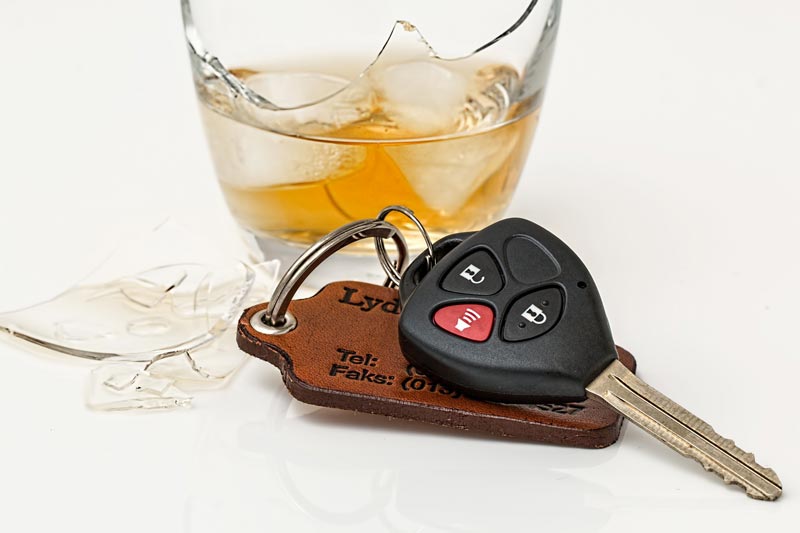DUI Laws, Fines, and Penalties in NJ and PA

Find the Right DUI Lawyer in PA & NJ
DUI laws vary from state to state. That’s why finding a law firm that understands that specializes in your state of residence immensely important. DUI Lawyers in PA & NJ must understand more than the average lawyer. At the Marrone Law Firm, LLC, our focus is keeping our clients informed on a wide range of legal issues which may impact them on any given occasion. Here, we’ll discuss the laws related to Driving Under the Influence (DUI) of drugs or alcohol in New Jersey and Pennsylvania.
First of all, it is important to understand the impact a DUI will have upon you if convicted. In Pennsylvania, a DUI is a criminal offense; whereas in New Jersey, it is not considered a criminal offense.
In both New Jersey and Pennsylvania, a blood alcohol concentration (BAC) is the scientific method used to determine legal impairment. In New Jersey, the Alcotest replaced the breathalyzer in 2006 and is used to measure a person’s BAC level. In Pennsylvania, the breathalyzer is still used.
The minimum BAC in both NJ and PA, for an operator of a motor vehicle to be legally under the influence is 0.08%. The penalties for a first offense in both NJ and PA differ depending on the level of your BAC.
Penalties & Fines
First Conviction – NJ
1st Offense: Your blood alcohol level is 0.08% but less than 0.10% or you are visibly under the influence of liquor.
- Your fines can range anywhere from $250.00 to $400.00, and will include a DWI
Surcharge of $100.00, a DDEF Surcharge of $100.00, assessments of $6.00, court costs
of $33.00, a safe neighborhood fine (SNSF) of $75.00, and also a VCCO fine of$50.00. - Your stay in the Intoxicated Driving Resource Center (IDRC) will be for a period of
12 Hours. - Jail time for a period of up to 30 days,
- Driver’s license suspension for a period of 3 months.
- An Interlock for your principal vehicle is optional and can last as long as one to six
months or even a year if required, and follows the period of your license’s suspension.
1st Offense: Your blood alcohol level is 0.10% or higher or you are visibly under the
influence of drugs.
- Your fines can range anywhere from $300.00 to $500.00, and will include a DWI
Surcharge of $100.00, DDEF Surcharge of $100.00, assessments of $6.00, court costs of
$33.00, a safe neighborhood fine (SNSF) of $75.00, and also a VCCO fine of $50.00. - Your stay in the Intoxicated Driving Resource Center (IDRC) will be for a period of
12 Hours. - Jail time for a period of up to 30 days,
- Driver’s license suspension for a period of seven months to one year.
- An Interlock for your principal vehicle is a mandatory six months to one year if
your blood alcohol level was .15 or higher. This Interlock will also be required while
your license is suspended as well as during any additional period. However, if your
blood alcohol level was less than .15 the Interlock will be optional and can range
anywhere from six months to a year following the suspension of your license.
First Offense – PA
- DUI based on impairment or a BAC of at least .08% but less than .10%. A first DUI conviction where the driver was convicted based on impairment or having a BAC of .08% or more but less than .10% is a misdemeanor. A convicted driver is looking at $300 in fines, a six-month term of probation, and up to six months in jail. The motorist will also have to complete an alcohol safety class and may be required to participate in substance abuse treatment.
- Impairment DUIs involving injuries, death, or property damage and DUIs involving BAC of at least .10% but less than .16%. A first DUI conviction where the driver was convicted based on impairment and someone was injured or killed or another’s property was damaged or the driver had a BAC of .10% or more but less than .16% is a misdemeanor. The convicted driver is looking at 48 hours to six months in jail, $500 to $5,000 in fines, and a 12-month license suspension. The motorist will also have to complete an alcohol safety class and may be required to participate in substance abuse treatment.
- Impairment DUIs involving a refusal to take a breath test and DUIs involving BAC of at least .16% or controlled substances. A first DUI conviction where the driver was convicted based on impairment and refused to take a breath test or the driver had a BAC of at least .16% or any concentration of a controlled substance is a misdemeanor. The convicted driver is looking at 72 hours to six months in jail, $1,000 to $5,000 in fines, and a 12-month license suspension. The motorist will also have to complete an alcohol safety class and may be required to participate in substance abuse treatment.
- DUIs with a minor passenger. A first offender who’s caught driving under the influence with a passenger who is under 18 years old is guilty of a first-degree misdemeanor. In addition to the penalties mentioned above, the convicted motorist is looking at least $1,000 in fines and 100 hours of community service. The motorist also faces up to five years in jail and an 18-month license suspension.
Implied Consent
In both New Jersey and Pennsylvania, there are implied consent laws.
New Jersey’s “implied consent” law says that if you are lawfully arrested by an officer who has probable cause to believe that you have been driving while intoxicated, then you consent to take a chemical test of your breath for the purpose of determining your blood alcohol content (BAC).
DUI lawyers in PA will often remind you the “implied consent” law says that if you are lawfully arrested by an officer who has probable cause to believe that you have been driving under the influence, then you consent to take a chemical test of your blood, breath, or urine for the purpose of determining your blood alcohol content (BAC).
Underage DUI
New Jersey is a zero-tolerance state. If a chemical test determines that a driver under 21 has a BAC of .01% or higher, the driver can be cited for driving under the influence.
In Pennsylvania, if a chemical test determines that a driver under 21 has BAC of .02% or higher, the driver can be cited for driving under the influence.
Final Analysis
There are strict tiered laws in both states for drunk driving. The best judgment call is to avoid this life-changing event and not drink and drive.
Moreover, if you are involved in an accident and you are determined to be under the influence, you could face significant jail time in State prison, regardless of whether you are convicted in NJ or PA.






